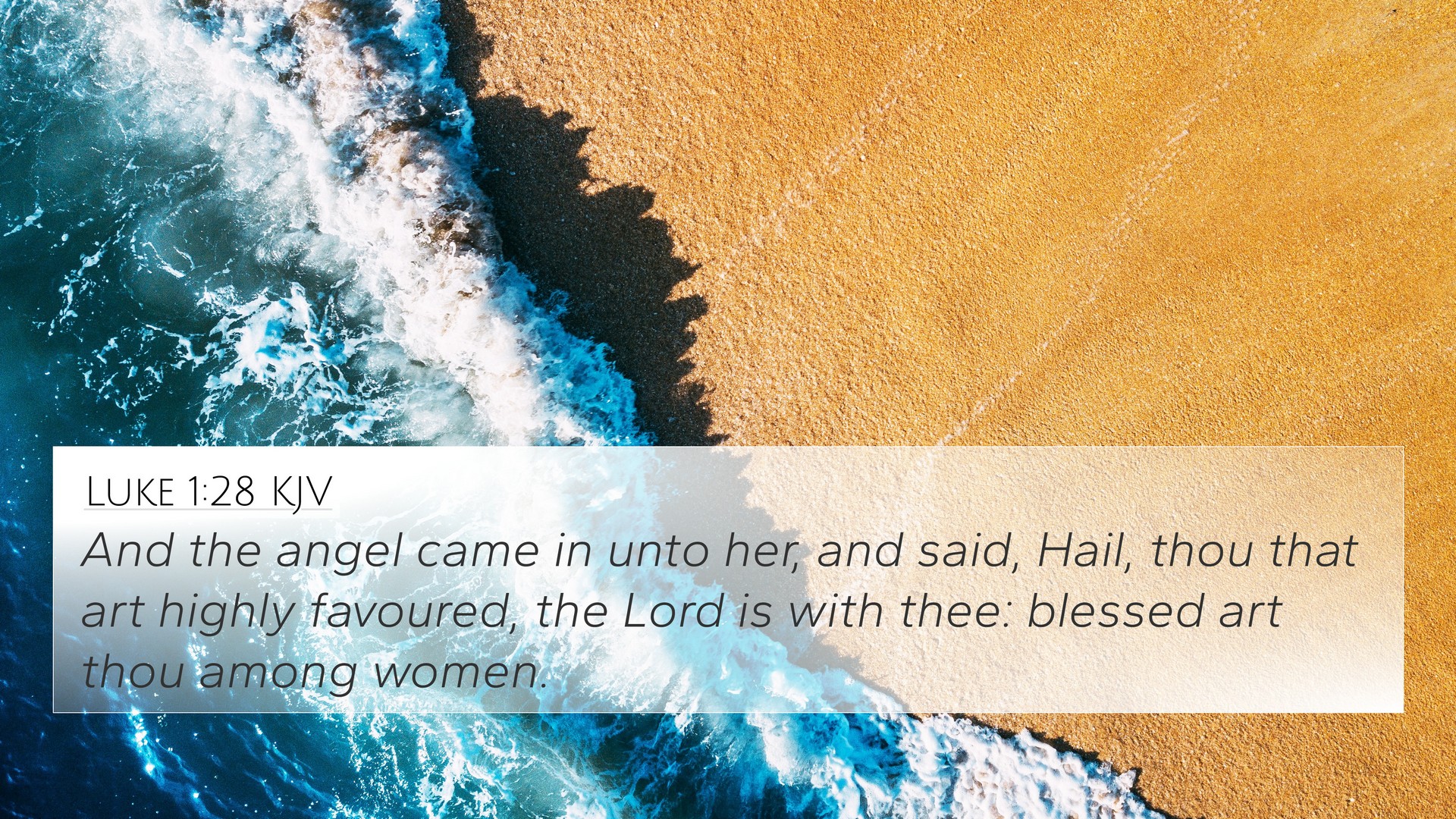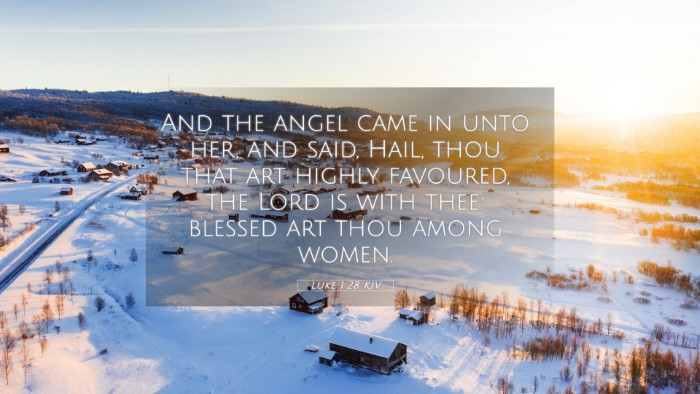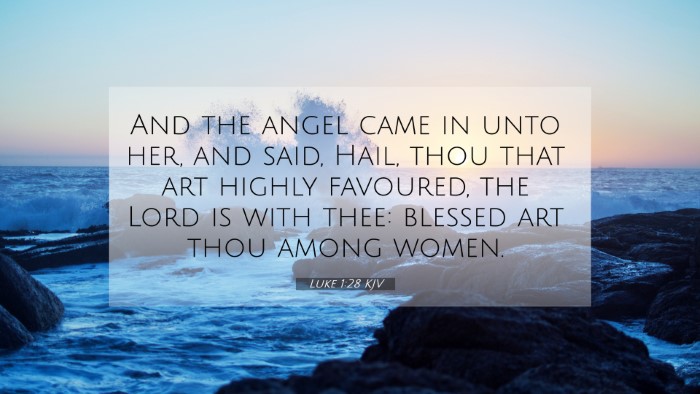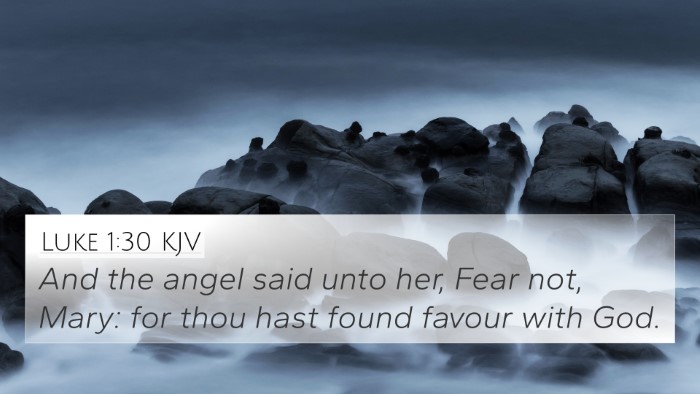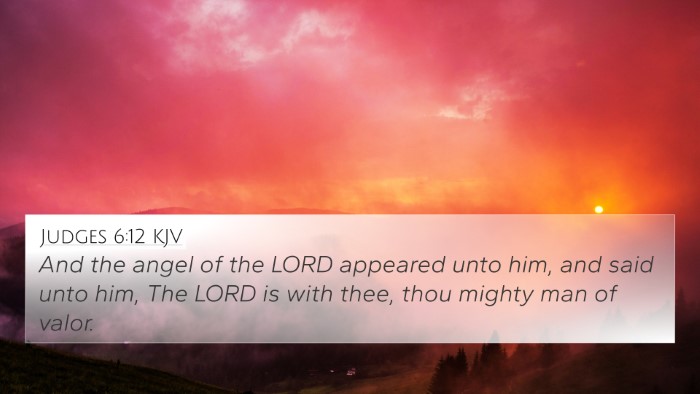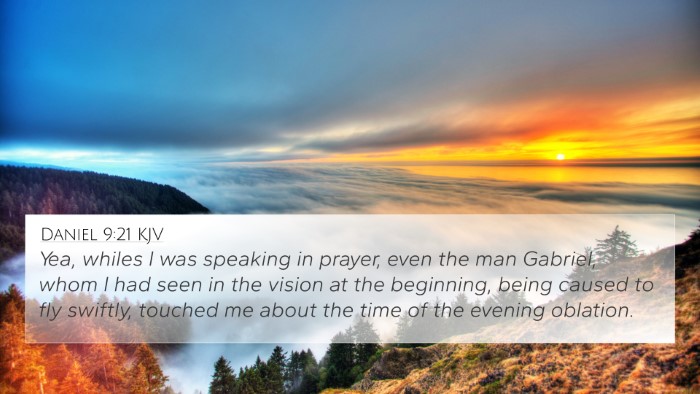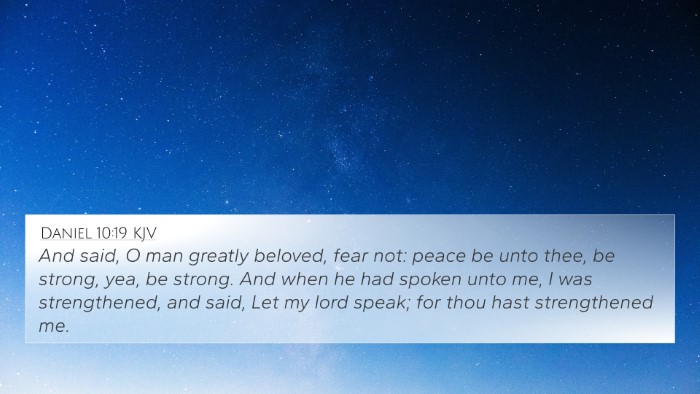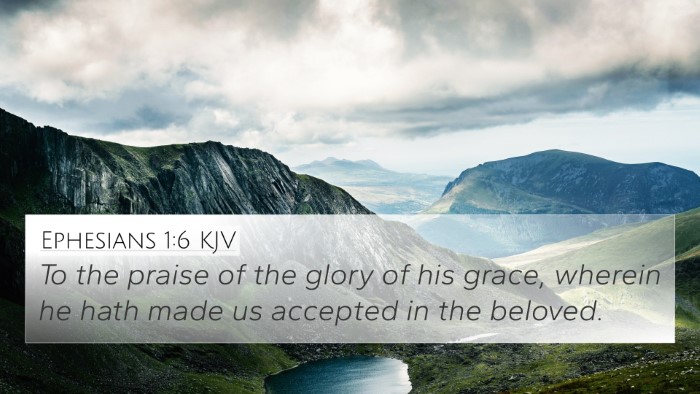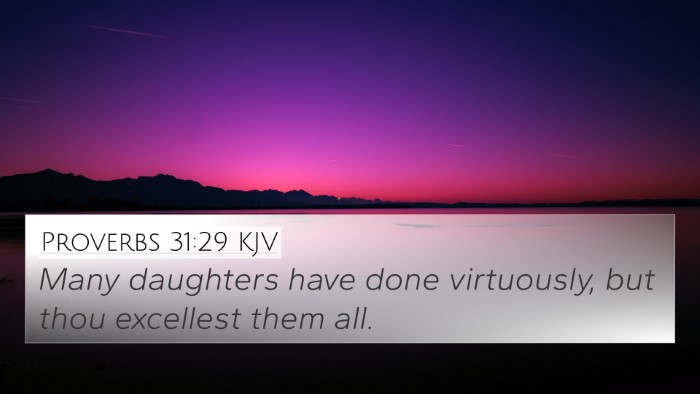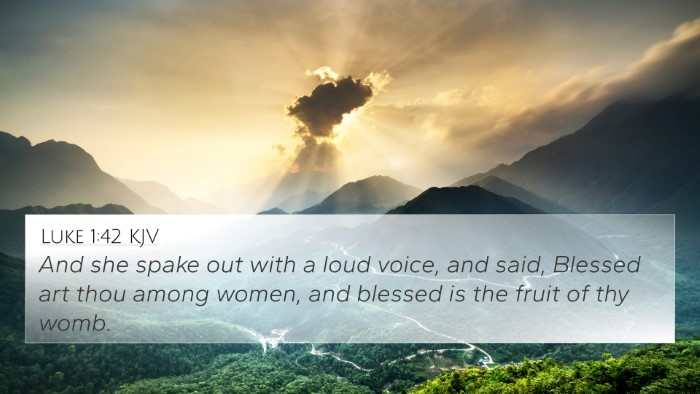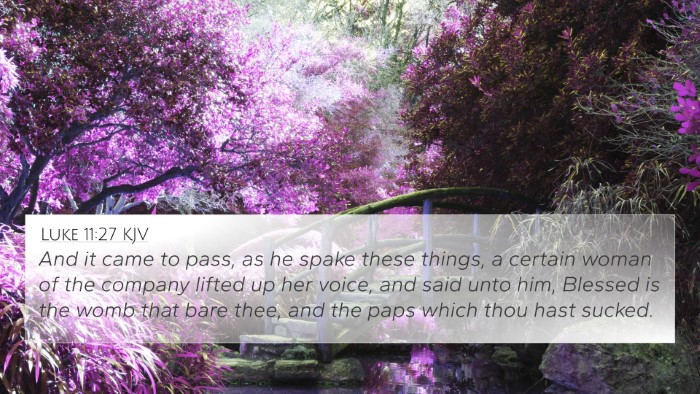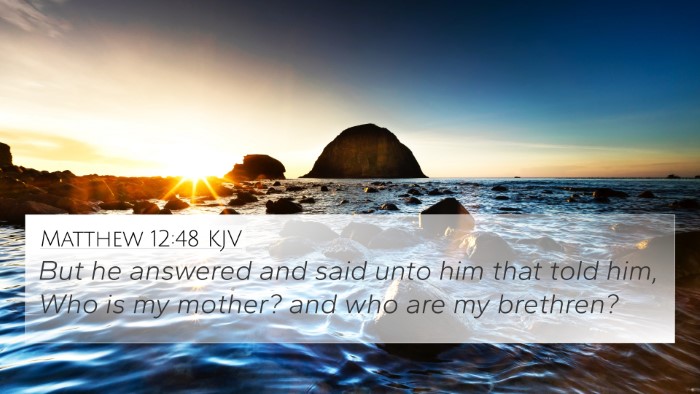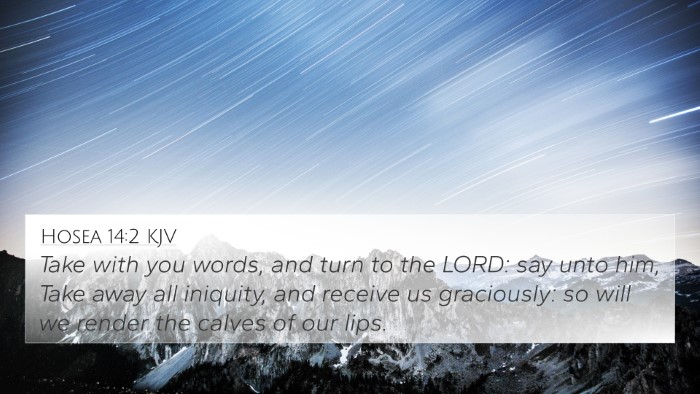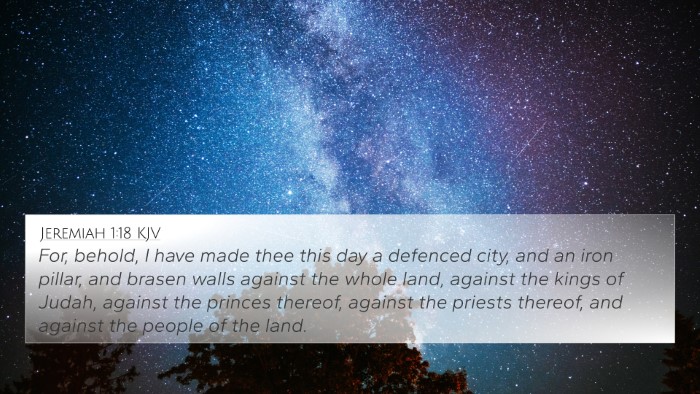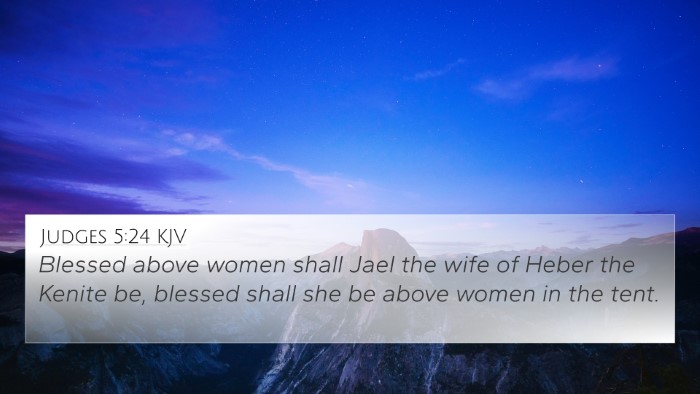Understanding Luke 1:28
Luke 1:28 states: "And the angel came in unto her, and said, Hail, thou that art highly favoured, the Lord is with thee: blessed art thou among women." This verse marks a pivotal moment in the biblical narrative, heralding the Annunciation, where the angel Gabriel announces to Mary that she will conceive the Son of God.
Summary of Meaning
This verse conveys several important themes and theological insights:
- Divine Favor: The term "highly favoured" emphasizes God's grace toward Mary, suggesting she is chosen for a unique role in God's plan.
- Presence of God: "The Lord is with thee" indicates Mary's divine support and the significance of God's presence in her life, which is echoed throughout Scripture.
- Blessing Among Women: Mary's blessed status highlights her special honor in biblical history, underscoring a theme of divine selection.
Theological Insights from Commentaries
The commentaries by Matthew Henry, Albert Barnes, and Adam Clarke provide profound insights into this verse:
- Matthew Henry: Emphasizes that this moment underscores God's sovereign choice and that Mary’s humility and willingness made her a fitting vessel for the Incarnation.
- Albert Barnes: Points out that Gabriel's greeting is a declaration of joy and a message of assurance, preparing Mary for the significant responsibility ahead.
- Adam Clarke: Highlights that the angel’s visit affirms God’s plan for salvation through Jesus, showing that God's methods often upend human expectations.
Bible Verse Cross-References
Luke 1:28 can be cross-referenced with the following verses, enhancing the understanding of Mary's role and the concept of divine selection:
- Isaiah 7:14: "Therefore the Lord Himself will give you a sign: The virgin will conceive and give birth to a son, and will call him Immanuel." This foretelling connects the Old Testament prophecy with the New Testament fulfillment in Mary.
- Matthew 1:23: "The virgin will conceive and give birth to a son, and they will call him Immanuel." This verse reinforces the miraculous nature of Christ's birth.
- Luke 1:42: "In a loud voice she exclaimed: 'Blessed are you among women, and blessed is the child you will bear!'" This affirming statement from Elizabeth echoes the angel's words of blessing.
- Genesis 12:3: "I will bless those who bless you, and whoever curses you I will curse; and all peoples on earth will be blessed through you." This verse underlines the unfolding of God’s covenant as seen through Mary’s lineage.
- Galatians 4:4: "But when the set time had fully come, God sent his Son, born of a woman, born under the law." This demonstrates the fulfillment of God's timing in sending Jesus through Mary.
- John 1:14: "The Word became flesh and made his dwelling among us. We have seen his glory, the glory of the one and only Son, who came from the Father, full of grace and truth." This emphasizes the incarnation initiated by Mary's consent.
- 1 Peter 2:9: "But you are a chosen people, a royal priesthood, a holy nation, God’s special possession, that you may declare the praises of him who called you out of darkness into his wonderful light." This reflects the concept of being favored by God, paralleled in Mary's experience.
Thematic Bible Verse Connections
Theological themes present in Luke 1:28 can be further explored through cross-referencing with other biblical texts:
- Exploration of humility and service in Luke 1:38, where Mary responds to the angel with faith and acceptance.
- The overarching theme of God's unwavering support is illustrated in Psalms 46:1, "God is our refuge and strength, an ever-present help in trouble."
- The role of women in biblical narratives can be enriched by analyzing Judges 4:4-5, where Deborah serves as a leader, paralleling Mary's unique calling.
- Comparative analysis of divine announcements in Matthew 1:18-20, where Joseph also encounters an angelic message regarding Mary.
How to Use Bible Cross-References
Using Bible references effectively leads to deeper insights and connections within the scripture:
- Create a topical guide focusing on specific themes, such as God’s presence and divine favor.
- Utilize tools such as a bible concordance to find related verses easily.
- Engage in cross-reference Bible study methods by writing down connections while reading.
- Compile a list of bible verses that relate to each other for thematic explorations during personal study or sermons.
Conclusion
Luke 1:28 is a profound declaration that sets the stage for the New Testament's narrative on Jesus' birth. By fostering an understanding of its connections through biblical cross-references, one can appreciate the intricate design of God’s plan for salvation through Mary. It's a reminder of the importance of being receptive to God's call and celebrating His favor in our lives.
